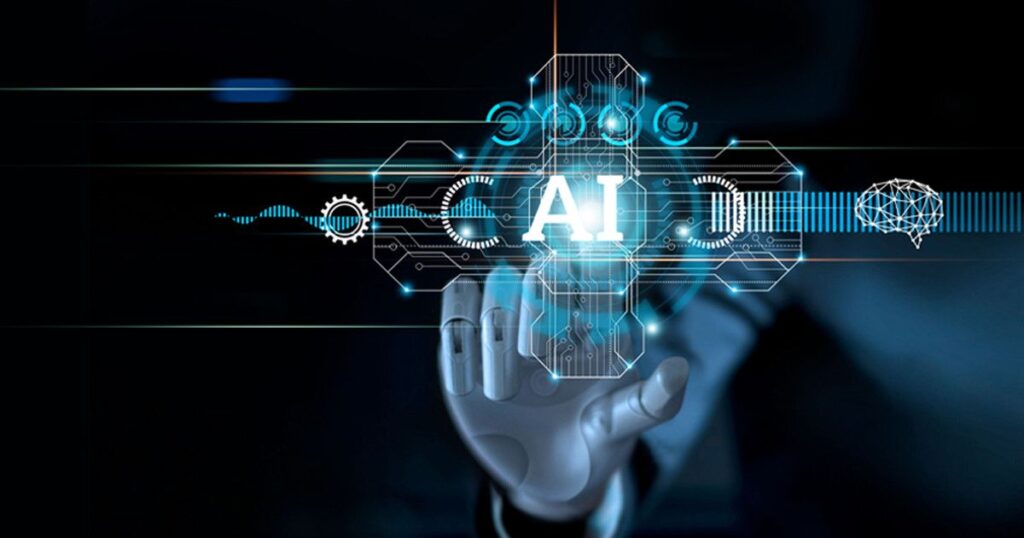Artificial intelligence (AI) is revolutionizing industries by automating processes, enhancing decision-making, and even creating new possibilities. However, the use of AI brings unique ethical challenges.
Ethics in AI testing ensures that AI models are fair, transparent, and do not harm individuals or communities. Ethical considerations are vital to ensure AI systems align with societal values and function reliably without causing unintended harm.
Why Ethics Matter in AI Testing
The importance of ethics in AI testing stems from the potential risks and impacts that AI systems can have. If ethical standards are not followed, AI systems could reinforce biases, misuse personal data, or even make harmful decisions.
Testing AI for ethical considerations minimizes these risks by identifying and addressing ethical issues before deployment.
- Data Selection: The data used to train AI models can introduce bias if not carefully chosen.
- Algorithm Audits: Regular audits help to identify and correct biased algorithms.
Importance Of Transparency in AI Testing
Transparency in AI testing is essential to ensure trust, reliability, and accountability in artificial intelligence systems. As AI becomes more integrated into daily life, clear understanding of its processes and decisions becomes crucial.
When AI operates in fields like healthcare, finance, or criminal justice, its decisions can have significant impacts.
Building Trust with Users
The use of transparent practices in AI testing builds trust with users and stakeholders. If users know how AI makes decisions, they’re more likely to trust those outcomes.
Transparency clarifies why certain outputs occur, allowing people to feel confident that the system isn’t producing results that are biased or harmful.
Ensuring Fairness in AI Systems
The potential for bias in AI systems makes transparency vital. If developers openly share the data used for testing and the methods applied, it’s easier to ensure that the AI isn’t unfairly targeting or disadvantaging certain groups. Transparent AI testing lets others assess if the system’s decisions are fair and unbiased.
Allowing Stakeholders to Validate Results
Transparency in AI testing enables stakeholders to validate results and hold developers accountable. It ensures that the AI behaves as intended and meets ethical guidelines. This accountability encourages developers to design fair, accurate, and reliable systems, reducing the risk of unforeseen problems.
Encouraging Continuous Improvement

Transparent testing doesn’t just benefit users; it also aids developers. By sharing testing practices and results, developers get valuable feedback, helping them improve their models. Open feedback loops encourage innovation and improvement, making AI systems more efficient over time.
Enhancing Compliance with Regulations
In many industries, transparency in AI testing is required to comply with regulatory standards. Governments and regulatory bodies are increasingly mandating AI transparency to protect users and ensure ethical practices.
Transparency helps organizations avoid legal issues and align with industry standards, ensuring the AI meets all necessary requirements.
Accountability in AI Development and Testing
Ethical AI testing places accountability on developers and testers. By establishing responsibility for decisions made by AI, organizations can better address potential issues.
- Ownership of Outcomes: Developers and companies should own both the positive and negative outcomes of their AI models.
- Monitoring and Updating: Continuous monitoring helps maintain ethical standards over time.
Privacy and Security in AI Testing
AI systems must protect personal data and respect user privacy. Testing for privacy and security ensures that AI applications handle data responsibly.
- Data Anonymization: Ensuring personal data is anonymized where possible.
- Secure Handling of Data: Data should be securely stored and transmitted to prevent unauthorized access.
Ethical Concerns in Autonomous Decision-Making
AI systems with autonomous decision-making power must be tested carefully. Ethical testing ensures that these systems act in line with human values and do not cause harm.
- Risk Assessment: Identifying potential risks in autonomous systems is crucial.
- Ethical Decision-Making Models: Using ethical frameworks helps guide the AI in making moral decisions.
Benefits of Ethical AI Testing

Testing AI systems for ethical concerns provides multiple benefits, including better public trust, higher reliability, and compliance with regulations.
- Increased Trust: Users are more likely to trust AI systems that are tested ethically.
- Improved Performance: Ethical testing improves the overall quality and performance of AI systems.
Best Practices for Ethical AI Testing
To ensure AI systems are ethically sound, developers should adopt best practices that prioritize ethical principles.
- Diverse Testing Teams: Involving diverse perspectives can help identify potential biases.
- Clear Documentation: Maintaining clear records throughout the development and testing processes supports transparency.
Ethical Standards and Regulations in AI
Compliance with regulations is a critical part of ethical AI testing. Standards like GDPR set guidelines for responsible AI use, ensuring user data is protected.
- GDPR Compliance: Protecting personal data aligns with ethical practices.
- Adherence to Industry Standards: Following industry standards helps build reliable and ethical AI systems.
Developing Ethical Guidelines for AI Testing
Developing internal ethical guidelines helps organizations standardize their approach to AI ethics. Clear guidelines ensure consistent ethical practices across projects.
- Code of Ethics: A code of ethics provides a foundation for all testing practices.
- Regular Ethics Training: Educating teams on ethical standards supports ongoing ethical compliance.
How to Handle Ethical Dilemmas in AI Testing
Sometimes, AI testers face ethical dilemmas that require careful consideration. Setting up processes to handle these dilemmas is an essential part of ethical testing.
- Ethics Review Board: Having a board to review ethical concerns can provide guidance.
- Clear Decision-Making Frameworks: Using frameworks helps resolve ethical conflicts consistently.
The Role of AI Ethics Committees
AI Ethics Committees play a crucial role in overseeing the ethical considerations of artificial intelligence systems. As AI technologies become more powerful and pervasive, these committees help ensure that AI development aligns with ethical standards, respects human rights, and addresses potential risks.
Why Are AI Ethics Committees Important?
The rapid advancements in AI bring new ethical challenges, such as bias, privacy concerns, and unintended consequences. AI Ethics Committees work to identify these issues before systems are widely deployed, creating a safeguard against misuse or harm.
Setting Ethical Guidelines
One of the primary roles of AI Ethics Committees is to set clear ethical guidelines for the development and deployment of AI. These guidelines often cover fairness, accountability, and transparency.
By establishing these standards, the committees provide a moral framework that guides AI engineers and developers toward ethical practices.
Evaluating AI Projects

AI Ethics Committees assess and evaluate specific AI projects to ensure compliance with ethical principles. This involves reviewing the project’s goals, data sources, potential biases, and implications for users. Through detailed evaluation, they help identify and mitigate risks that could harm individuals or communities.
Protecting User Privacy And Data Security
With the extensive data required for AI systems, protecting user privacy and ensuring data security are top priorities. AI Ethics Committees monitor data-handling practices to ensure compliance with privacy regulations and ethical data use. This oversight reduces the likelihood of data misuse, breaches, or unethical data exploitation.
Addressing Bias and Fairness
Bias in AI algorithms can lead to unfair treatment of certain groups, perpetuating discrimination in hiring, lending, healthcare, and other critical areas.
AI Ethics Committees focus on identifying and mitigating these biases, promoting fairness across AI applications. They work to ensure algorithms do not reinforce stereotypes or discriminate against vulnerable populations.
Ensuring Accountability in AI Development
Ethics Committees establish clear accountability structures, defining who is responsible when AI systems fail or cause harm. This accountability helps create trust between developers, users, and the public. By making responsibility transparent, ethics committees encourage developers to prioritize ethical standards in their work.
Guiding Transparent Communication
AI systems can be complex, and transparency is essential to maintain public trust. AI Ethics Committees often advocate for transparent communication, encouraging developers to clearly explain how AI systems work, how data is used, and what limitations exist. This approach helps users understand AI technology and promotes responsible use.
Supporting Compliance with Laws And Regulations
As governments introduce regulations for AI, compliance becomes a legal obligation. AI Ethics Committees play a significant role in guiding organizations to follow these legal standards. They ensure that AI systems respect human rights, comply with data protection laws, and adhere to industry-specific regulations.
Promoting Ethical AI Research
AI Ethics Committees also promote responsible and ethical AI research. They encourage researchers to consider the social and ethical impacts of their work. This approach leads to innovations that benefit society while minimizing potential harm, fostering a culture of ethical innovation.
Addressing Unintended Consequences
AI systems sometimes produce unintended consequences that could harm users. Ethical testing helps identify and mitigate these risks.
- Scenario Analysis: Testing models across different scenarios helps reveal unexpected outcomes.
- Continuous Monitoring: Real-time monitoring can detect and address issues that arise in production.
Importance Of Public Awareness in AI Ethics
Public awareness of AI ethics creates a knowledgeable user base that can engage with AI systems responsibly.
- Educational Outreach: Informing the public about AI ethics helps build trust.
- Transparency in Communication: Being open about ethical practices reinforces accountability.
Implementing Ethical AI Testing in Your Organization
Incorporating ethical AI testing practices into your organization requires a strong commitment to ethical principles.
- Leadership Commitment: Support from leadership promotes an ethical culture.
- Cross-Department Collaboration: Collaboration helps identify ethical issues across different functions.
Ethical AI Testing in Practice
Several organizations have set up frameworks and practices to ensure ethical AI testing, setting examples for others in the industry.
- Case Studies: Studying real-world examples provides insights into effective ethical practices.
- Industry Benchmarks: Setting benchmarks encourages other organizations to adopt ethical standards.
Frequently Asked Question
Why is ethics important in AI testing?
The ethics in AI testing ensure that AI systems operate responsibly, reduce bias, and protect user privacy.
How does ethical AI testing affect public trust?
Ethical AI testing builds trust by showing users that the AI operates transparently and without harm.
What are the key ethical concerns in AI testing?
Common concerns include bias, transparency, accountability, and data privacy.
How can organizations ensure ethical AI testing?
Organizations can follow best practices, create ethical guidelines, and establish an ethics committee.
Conclusion
Ethics play an essential role in AI testing by ensuring that AI systems are fair, accountable, and respectful of user privacy. Ethical testing helps reduce biases, build public trust, and create reliable AI applications.
By incorporating ethics into every stage of development and testing, organizations can foster responsible AI innovation and maintain alignment with societal values.










